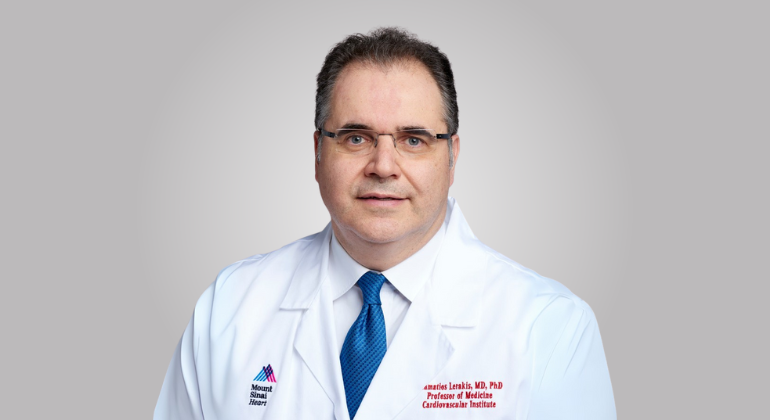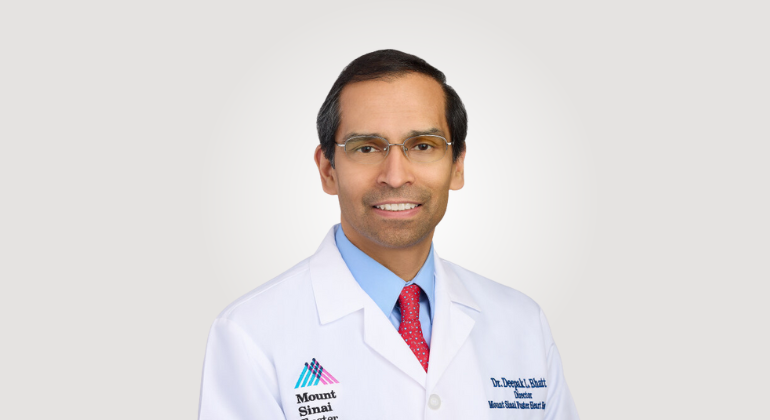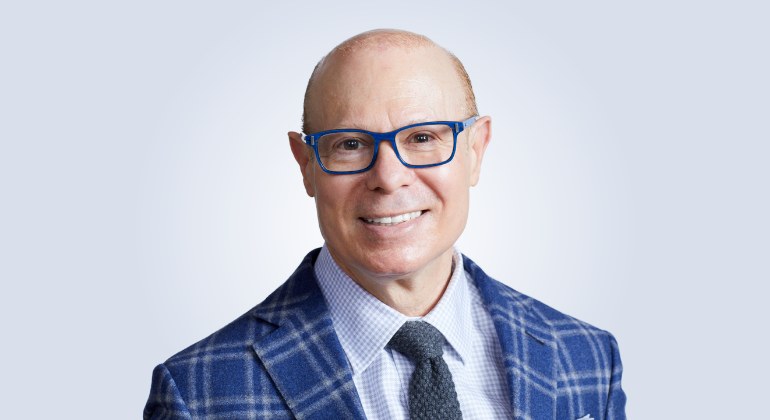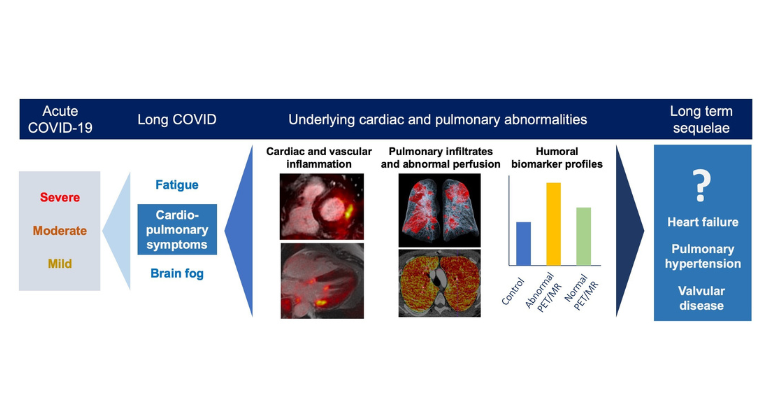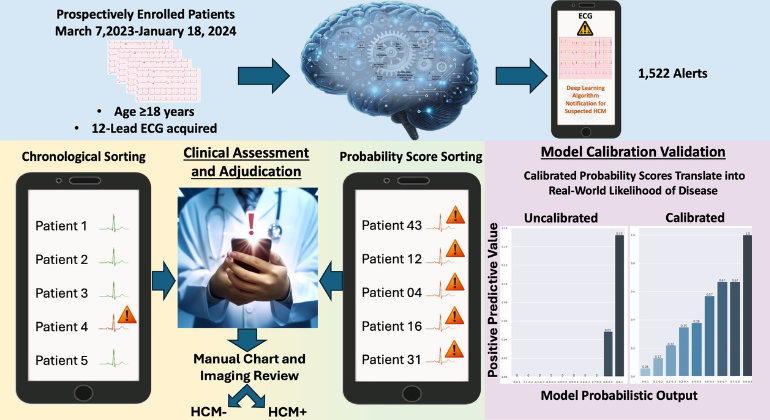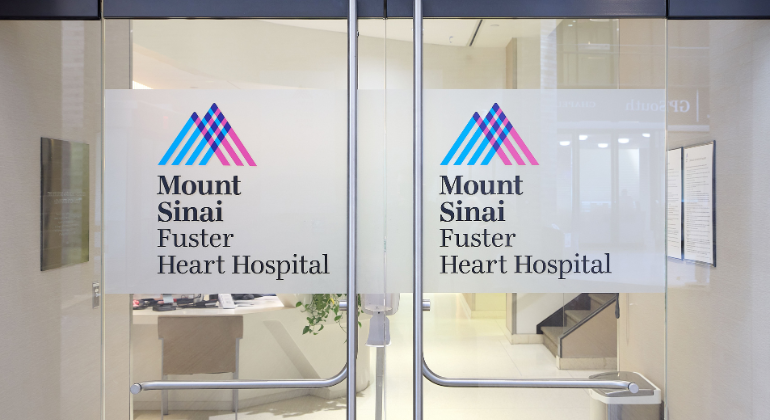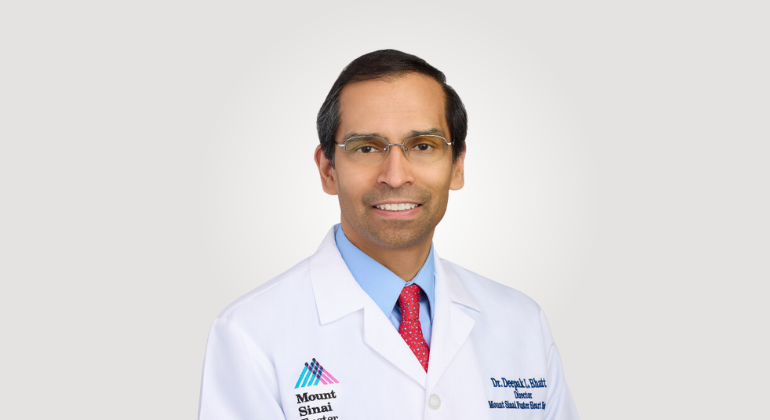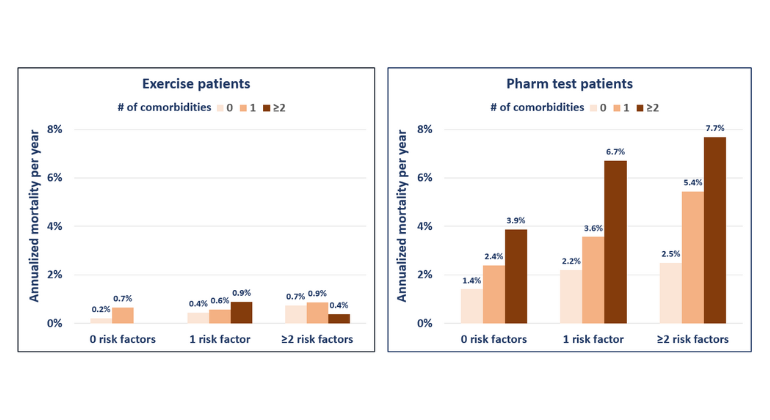Information for Patients Who Have Had Open-Heart Surgery Regarding Possible Contamination of Heater-Cooler Devices
Information for Patients Who Have Had Open-Heart Surgery at The Mount Sinai Hospital or Mount Sinai St. Luke’s Regarding Possible Contamination of Heater-Cooler Devices
The U.S. Centers for Disease Control and Prevention (CDC) and the Food and Drug Administration (FDA) are investigating reports that a particular device used to heat and cool the blood during heart surgery has been linked to a rare bacterial infection caused by Mycobacterium chimaera, a type of bacteria known as nontuberculous mycobacterium (NTM). The Mount Sinai Health System has sent letters to patients who had heart surgery at The Mount Sinai Hospital or Mount Sinai St. Luke’s to inform them about this potential infection risk.
The CDC reports that more than 200,000 cardiac procedures are performed annually in the United States using these types of devices and 60 percent of United States hospitals use the devices that were linked to NTM infections. The CDC estimates the risk of getting an infection to be less than one percent. Of the nearly 5,000 patients who have undergone heart surgery using these devices at The Mount Sinai Hospital or Mount Sinai St. Luke’s, we are not aware of anyone who has developed this infection.
Q. What should I do?
A. The best source for answers and advice is your primary care doctor. If you feel you may have any symptoms of an NTM infection, you should see him/her. Common symptoms are non-specific and include night sweats, muscle aches, weight loss, fatigue, and unexplained fever. Your primary care doctor will be able to assess whether you should be concerned about an NTM infection and refer you to the appropriate provider.
Q. What if I do not have any symptoms?
A. If you do not have symptoms, there is no need to see your doctor at this time. If you still have concerns, the best thing to do is to speak with your primary care doctor and remind him/her that you had heart surgery and when you had that heart surgery.
Q. What should I tell my doctor?
A. The letter we sent you included a second letter for you to give to your primary care doctor. It included references that can provide him/her with information to respond to your concerns and to guide any medical management that may be required. We have taken efforts to make sure that all Mount Sinai physicians are aware of this matter and that they have access to the latest information. The CDC and FDA have sent out alerts to all physicians across the country.
Q. Is there a screening test that can detect if a person has been exposed to the infection?
A. There is no screening test and diagnostic testing is not indicated if you do not have symptoms of an NTM infection.
Q. How long does it usually take for these infections to show up?
A. NTM are slow-growing bacteria and infections may take months to develop. Cases associated with this device have been diagnosed within months and up to several years after an open-heart surgery involving heater-cooler unit exposure.
Q. Can a person who develops one of these NTM infections spread it to others, such as family members?
A. No, the bacteria cannot be spread to others from an infected patient. Also, it is important to keep in mind that NTM is common in soil and water but rarely makes healthy people sick.
Q. Should everyone who was exposed to these devices during open-heart surgery receive antibiotics just in case?
A. The risk that patients will develop an infection following exposure to a contaminated heater-cooler unit is very low. There is also no evidence that giving antibiotics just prior or during surgery with will prevent these infections. Although antibiotics can be life-saving drugs, there is no antibiotic treatment available to ward off this specific infection and antibiotics are also not without risk themselves. Antibiotics put patients at risk for allergic reactions and a potentially deadly diarrheal infection caused by the bacteria Clostridium difficile. Antibiotic use is also a key driver of antibiotic resistance, which can put patients at risk for antibiotic-resistant infections later.
Q. How long does it take to find out if an infection is being caused by NTM?
A. M. chimaera is a slow-growing species of NTM that can take eight weeks and sometimes longer to grow and allow final identification.
Additional Resources:
About the Mount Sinai Health System
Mount Sinai Health System is one of the largest academic medical systems in the New York metro area, with 48,000 employees working across seven hospitals, more than 400 outpatient practices, more than 600 research and clinical labs, a school of nursing, and a leading school of medicine and graduate education. Mount Sinai advances health for all people, everywhere, by taking on the most complex health care challenges of our time—discovering and applying new scientific learning and knowledge; developing safer, more effective treatments; educating the next generation of medical leaders and innovators; and supporting local communities by delivering high-quality care to all who need it.
Through the integration of its hospitals, labs, and schools, Mount Sinai offers comprehensive health care solutions from birth through geriatrics, leveraging innovative approaches such as artificial intelligence and informatics while keeping patients’ medical and emotional needs at the center of all treatment. The Health System includes approximately 9,000 primary and specialty care physicians and 10 free-standing joint-venture centers throughout the five boroughs of New York City, Westchester, Long Island, and Florida. Hospitals within the System are consistently ranked by Newsweek’s® “The World’s Best Smart Hospitals, Best in State Hospitals, World Best Hospitals and Best Specialty Hospitals” and by U.S. News & World Report's® “Best Hospitals” and “Best Children’s Hospitals.” The Mount Sinai Hospital is on the U.S. News & World Report® “Best Hospitals” Honor Roll for 2025-2026.
For more information, visit https://www.mountsinai.org or find Mount Sinai on Facebook, Instagram, LinkedIn, X, and YouTube.
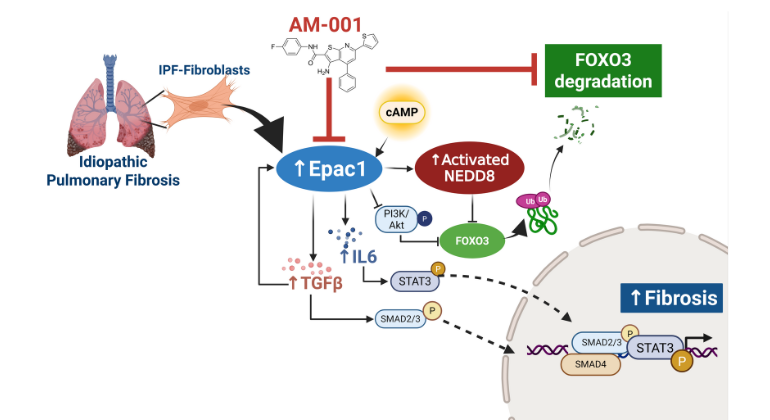
Blocking a Little-Known Protein May Offer New Hope for Devastating Lung Disease
Jul 15, 2025 View All Press Releases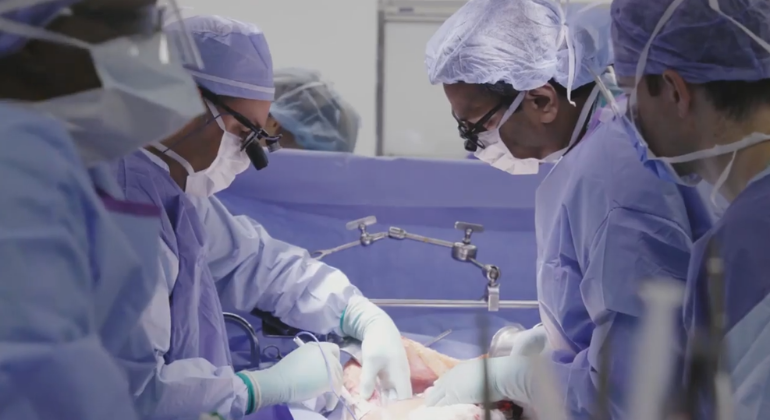
Mount Sinai Surgeons Perform First Heart-Liver-Kidney Transplants in New York State
May 20, 2025 View All Press Releases